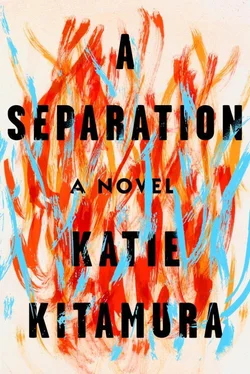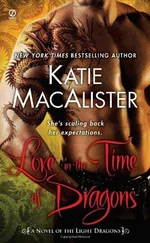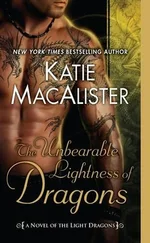But he was loved by you, she said insistently, the love of a wife is different, it’s important.
More important than the love of his mother? I asked. I immediately regretted it, I would have taken the question back if I could, the woman’s son had just died, if I could not be generous to her now, when would I? But she replied, somberly, Yes, it is the most important love, the love of the mother is a given, it is taken for granted. A child is born and for the rest of his or her life the mother will love the child, without the child doing anything in particular to earn it. But the love of a wife has to be earned, to be won in the first place and then kept.
She paused, and then added, although I thought without malice, You don’t have children, perhaps it is difficult for you to understand. And I said in reply, Yes, I loved him, Isabella, he died loved, and she said, Ah. That’s all I wanted to know.
• • •
And yet her words returned to me, as I went through Christopher’s belongings, packing them up so that they could be taken back to London (the hotel staff had merely placed his things in boxes, they were in a state of total disarray, it was not a task I could have asked Isabella to perform. Isabella, whose grief had already taken precedence over mine, both because of her natural egotism and because the secret of my estranged status from Christopher meant that I did not believe my grief had any claims to make of its own, I allowed the situation to happen).
When I found the June issue of the London Review of Books , it was open to the back pages. Those pages contained personals and real estate listings— colonial-style house on the coast of Goa, four kilometers from Monte San Savino, own wheels essential, life-enhancing writing holiday at luxury retreat. In the bottom left-hand corner, on the page to which the issue was opened, the binding torn at the staples as if the pages had been folded back for some time, was a boxed ad that had been circled with a pen, reading:
INFIDELITIES: Has life become somewhat stale and routine? Would discreet dating introductions give you back that missing special spark?
Infidelities is all about the alternative relationship experience. We offer you a personal, professional, bespoke scheme, far removed from Internet searching. Women are especially welcomed to our unique project. Please telephone James for a private friendly chat.
The ad went on to include both a landline and a mobile phone number. As I read it through a second time, I thought, somewhat mechanically, that the copywriter had no ear to speak of—why, for example, somewhat stale rather than simply stale , why missing special spark rather than missing spark ? Perhaps it didn’t matter in most circumstances but the ad had been placed in the London Review of Books , which had an educated and sophisticated readership, a readership who thought of itself that way. The tone of the advertisement was a complete mess, on the one hand it read like a proposal from a bank or an investment opportunity, for example there was the use of the word scheme . On the other hand it sounded like a badly conceived free-love experiment, why describe it as a unique project , why refer to it as alternative ?
I smoothed the paper, my hands were trembling a little. It was the final line, the injunction to call James for a private friendly chat , that struck me as the most bizarre, particularly the inclusion of both a mobile and a landline number. I imagined this James, constantly on call, ready to drop everything should his telephone ring, either one, always prepared to enter into private and friendly conversation at any time of day or night, the more I thought about it the more the inconsistency of tone troubled me, on the one hand it was professional , bespoke , on the other hand it was a chat , it was friendly .
Christopher’s agent was also called James, a charming and charismatic man in his sixties and a well-known figure in the publishing world, a man more different from this James could not be imagined. And yet perhaps the services they offered were not so dissimilar, discretion, sympathy, a kind of professional intimacy—I began to imagine Christopher’s avuncular agent moonlighting as Infidelities James, writing the copy on his laptop, sending the form to the ad department of the London Review , waiting for the calls to come in, an absurd but nonetheless amusing image, perhaps it had been the echo of the name that had prompted Christopher to note the ad in the first place.
But what exactly was Infidelities offering to someone like Christopher, for example, who did not need any assistance in arranging his infidelities, or require any introductions—they happened to him, the way depression happened to some people—but who had nonetheless paused to note this ad? What could this scheme have provided? The kind of assistance Christopher would have needed was more in the management of his trysts and mistresses, an administrative service of some kind, orchestrating affairs was a headache, there were stories to be kept straight, diaries to be coordinated, evidence to be concealed.
Yes, Infidelities James would have had more luck if he’d advertised services that were more along these lines, that would have truly been bespoke (the advertisement was trying to give the impression of being upscale and sophisticated but in fact merely sounded suburban, essentially tawdry). Then Christopher might have stopped to pick up the telephone and say, Hello, I need help with my infidelities, more specifically, I need help managing them, they are becoming a bit of a headache. And then Infidelities James would have made a series of helpful suggestions or proposals, things that would smooth the potentially rough course of faithlessness, whether it was a second mobile phone or well-timed spousal gifts.
Above all, friendly and discreet as a priest, he would have condoned Christopher’s faithlessness. And I knew then that this was the real reason Christopher had stopped to circle the advertisement. It didn’t require a telephone call or a conversation with James, the mere fact of his advertisement and its brazen message was enough—there were others doing it, there were even people who wished to be unfaithful but did not know how. Christopher must have been reassured, he must have thought it was entirely natural, this compulsion of his, which had gone beyond pleasure and into something far more terrible. Toward the end, he had become like Moira Shearer in The Red Shoes , forced to dance, past pleasure or joy and into the realm of death.
How many had there been, exactly? Christopher never could keep his cock in his pants. I knew about three, for all our sakes I had pretended to myself and to him that it was only three, that it was a finite number. Three was bad enough for such a short marriage, three was infidelities, multiple affairs rather than an affair or two. And yet I had always known there had been others, possibly many others, I don’t blame you, I know my son, I’m not sure that any woman would have been able to keep him from straying . Isabella had seen his faithlessness as a kind of cancer, for which the prognosis was always bad.
And which I had not succeeded in curing—I understood this now, and I understood that the coldness of her grief, the inexplicable and matter-of-fact vitriol she directed toward her son, would eventually find its true target. I pushed the paper away. Eventually Isabella would come to blame me, she was blaming me now, even if she didn’t know it yet. My heart contracted—I could not think of anything to say in my defense. Christopher was dead, and I was living with another man, I had left him to his faithlessness—yes, in the end, I had been the one to do the leaving.
Читать дальше











